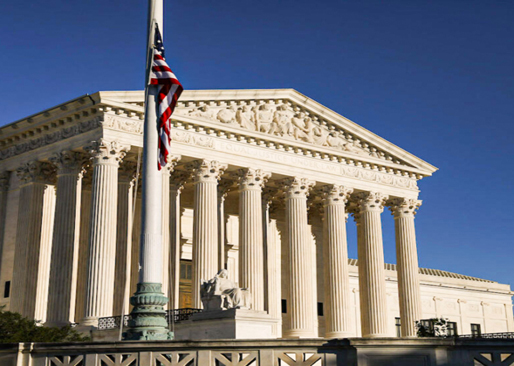
In a significant decision on Tuesday, the U.S. Supreme Court rejected an appeal challenging the admissions policy at Thomas Jefferson High School for Science and Technology, a renowned Virginia public school. The appeal, led by a coalition of parents and students, contended that the school's revised admissions policy unfairly discriminated against Asian Americans. This move by the Supreme Court preserves a lower court's ruling, which deemed the admissions policy constitutional and not in violation of the 14th Amendment's equal protection guarantee.
Background and Lower Court Decision
Thomas Jefferson High School, often referred to as "TJ," is a highly selective magnet school specializing in math, science, and technology. The school's admissions policy came under scrutiny when a coalition of plaintiffs, represented by the conservative Pacific Legal Foundation, filed a lawsuit against the Fairfax County School Board in 2021. The coalition alleged that the seemingly race-neutral admissions policy was intentionally designed to reduce the number of Asian American students at the school.
The 4th U.S. Circuit Court of Appeals, based in Richmond, Virginia, previously rejected the claims, asserting that there was no evidence of disparate impact on Asian American students or discriminatory intent by the school board. Despite this, conservative Justices Samuel Alito and Clarence Thomas dissented from the Supreme Court's decision, criticizing the lower court's ruling as "patently incorrect" and challenging its interpretation of intentional race discrimination.
Admissions Policy Revisions
The controversy surrounding TJ's admissions policy stems from changes implemented in 2020 by the school board. Concerns about the lack of socioeconomic, geographic, and racial diversity prompted the board to revise the policy. Previously, the school predominantly admitted students from a select number of affluent middle schools in the county. The revised policy abandoned standardized testing requirements and adopted a system that reserved seats for top students from each public middle school, providing additional points for those from underrepresented schools and those qualifying for free school meals.
Following the policy changes, the percentage of Asian American students admitted to TJ decreased from 73% in the year before the revisions to 54% in 2021, 60% in 2022, and 62% in 2023. Conversely, students from other racial groups, female students, and those from low-income households, including Asian Americans, experienced an increase in admissions.
Dissent and Future Implications
Justice Alito, in his dissenting opinion, characterized the 4th Circuit's decision as a potential "virus" that could spread if not promptly addressed. He argued that the ruling effectively allows official actors to discriminate against any racial group with impunity, as long as that group continues to outperform others.
The plaintiffs, supported by the Pacific Legal Foundation, contended that the Supreme Court missed an opportunity to eliminate what they consider race-based discrimination in kindergarten through high school admissions. They emphasized the importance of evaluating students as individuals rather than as members of racial groups.
In the wake of the Supreme Court's decision, Karl Frisch, chair of the Fairfax County School Board, expressed confidence in the constitutionality of the revised admissions process. He emphasized that the policy ensures a fair opportunity for all qualified students, regardless of their neighborhoods, to attend the prestigious high school.
While this ruling does not directly address affirmative action policies, it adds to the ongoing legal discourse surrounding diversity and discrimination in educational institutions. The impact of this decision may resonate beyond TJ, influencing future considerations of admissions policies in schools nationwide.



